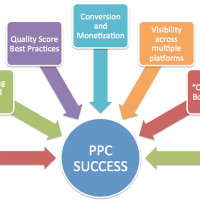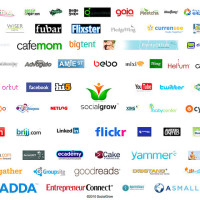To promote your business, you use different SEO techniques, including social media posts and blogging. LinkedIn is a powerful platform to increase the engagement of potential customers with your business. Along with all these efforts, you cannot ignore PPC (pay per click) marketing.
Undoubtedly, PPC marketing services will help you stay ahead in the competition. By using PPC strategies, you can increase the visibility of your company on the web. Moreover, you will get a chance to target a specific audience. For your help, here are some tips for PPC marketing. These will help you to improve your ROI (return on investment).
Multiple ads and A/B testing
For your business, you will need specific ads. You cannot randomly select an ad to promote your business. To get PPC ads with the highest conversion rate, make sure to test them. Indeed, A/B testing is a simple process.
Create two different ad campaigns and use Google analytics to determine their performance. You have to tweak body text, headline and landing page frequently to create the best PPC ad. Remember, you have a consistently evolving group in your customer base. Hence, regular A/B test is important.
Long-tail keywords
Nowadays, web users are frequently using long-tail keywords to find services or information. For this reason, you can enjoy the benefits of long-tail keywords in your ad campaign. It is important to address particular needs. Make sure to research keywords with low competition. You will need suitable keywords to create an ad campaign.
Multiple ad groups
In an ad group, you can target particular keywords. To extend the reach of the PPC campaign while targeting a specific group, avoid restricting yourself. Make sure to set up different ad groups and use A/B testing to determine the best groups for your company.
Fortunately, several platforms allow you to set up several ad groups, such as Google Adwords. If your ad group is not converting, feel free to delete unproductive campaigns. Remember, your ad campaigns should complement your content marketing tactics.
Landing page optimization
To find particular information, users often use long-tail keywords. You can take benefit of this situation by optimizing highly relevant ads and landing pages. Focus on the consistency of landing page verbiage, call to action and PPC ad. Remember, SEO practices will help you to keep landing pages unique.
Geolocation settings
A multinational company may not need geolocation settings, but it is essential for local retailers. For this reason, target your advertisements for an intense geographical area. Your ads should target clients within your market. In this way, you can understand the requirements of customers in your area.
Negative keywords
PPC strategies are incomplete without keywords, and marketers often ignore negative keywords. Remember, negative keywords may prove helpful to target a particular audience. It is an easy way to increase the relevance of your ads to customer searches.
Feel free to use negative keywords in an ad campaign. Its outcome might help you to save money and time. Sometimes, negative keywords prove suitable to deter disinterested people.



